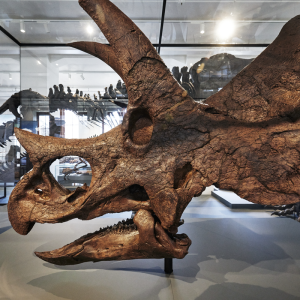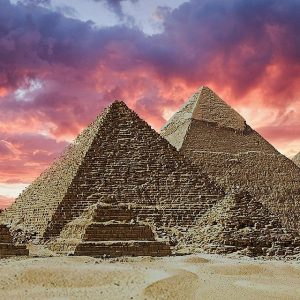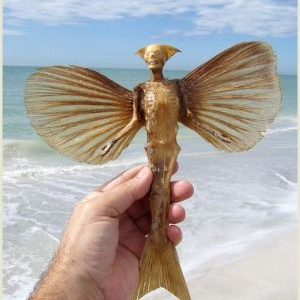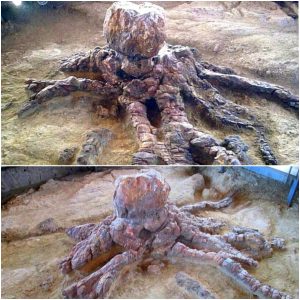
The King Arthur statue at Tintagel Castle is a work of art that captures the imagination and embodies the power and legend of one of the most iconic figures in British history. Created by Welsh sculptor Rubin Eynon, the statue is made of solid bronze and took over six months to design, sculpt and cast.

The statue’s sheer size and weight made it difficult to transport and install, and it was ultimately flown in by helicopter. It was given the title “Gallos,” which derives from the Cornish word for power, and features a crown on its head and what appears to be the legendary sword, Excalibur, in hand.

While some believe that the statue depicts King Arthur, English Heritage, the organization responsible for Tintagel Castle, has been careful not to confirm or deny this. The official line is that the statue represents not only the legend of Arthur but also the royal heritage and historic importance of the site.

The statue’s vagueness regarding its subject may be due to previous criticism of other installations at Tintagel Castle, such as the carving of Merlin’s face into the cliff face, which was seen as “Disneyfication” by some historians and Cornish nationalists.

However, the Gallos sculpture has received a much more positive reception. It is a work of beauty that complements its surroundings, despite its contemporary nature. In a place where legends mix with history, it is difficult to distinguish what is “genuine” and what is not. The ruins of the castle itself were built long after Arthur’s time, by Richard, 1st Earl of Cornwall, who chose the location based on the legend and had it styled to look older.

The Victorians also left their mark on the site with the construction of a castellated courtyard wall. Therefore, the King Arthur statue serves as a symbol not only of Arthurian legend but also of the layers of history that have accumulated at Tintagel Castle.

In conclusion, the King Arthur statue at Tintagel Castle is a testament to the enduring power of legend and history. Created by a talented Welsh sculptor, it captures the imagination and represents the royal heritage and historic importance of the site. While its subject may be vague, its beauty and significance are undeniable, and it will continue to be a beloved attraction for visitors to Tintagel Castle for generations to come.






